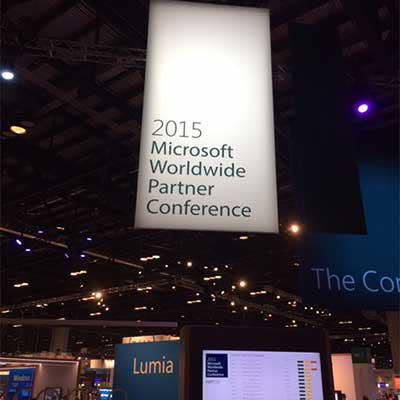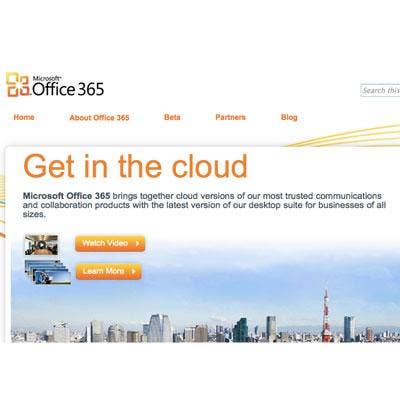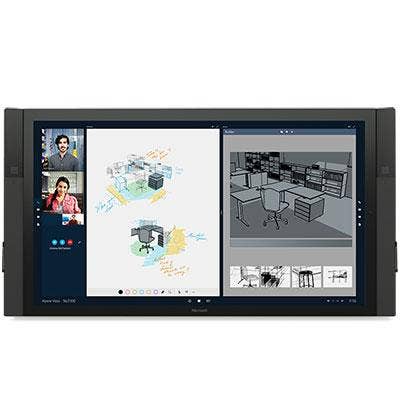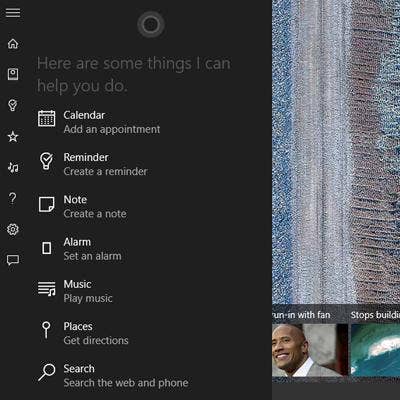9 Ways Microsoft Is Transforming Its Channel

Microsoft At A Crossroads
A sense of innovation and excitement permeated the opening day of Microsoft's 2015 Worldwide Partner Conference in Orlando, Fla. That's an accomplishment given the world's largest software company often bears a reputation for being stuffy and staid.
But with new technologies Microsoft's releasing to its channel, and a burgeoning ecosystem of tools and services coming from innovative third-party developers, partners genuinely seemed enthused about the future.
The new products, services, tools, competencies and incentives carry the potential to transform and revitalize the businesses of solution providers across the world. But Microsoft recognizes capitalizing on those opportunities is challenging, said John Case, corporate vice president of Microsoft's Office division, in a keynote.
"You're going through a channel evolution and we know it's not easy. We know it's hard," Case told partners. "We want you -- we need you -- to be in the full-service experience, to own the entire customer life cycle."

1. CSP
The Cloud Solution Provider program, launched last year and now in rapid expansion mode, dominated many a conversation at WPC.
The program enabling partners to bundle Microsoft services with their own and bill as one unique offering has expanded to 131 markets, and now Microsoft said it's ready to really take off.
"This is the single biggest investment we're making in expanding our channel for cloud," Case said in his keynote.
CSP just added to its product portfolio Azure, Enterprise Management Suite and the Dynamics CRM. Microsoft will soon release a commerce REST API to better automate transactions.
The channel interest in learning more about how the program worked, and what kind of profits it could generate, made CSP information sessions at WPC a crowded affair -- even an overflowed room overflowed.

And Another Thing About CSP ...
Thomas Hansen, vice president of worldwide SMB, told CRN he would rank the CSP expansion as the first-, second-, third- and fourth-most important takeaways from the conference for partners.
"This conference is really about mainstreaming CSP," Hansen told CRN.
A 2-Tier CSP partner -- essentially a wholesaler who sells CSP solutions to Microsoft's larger channel -- told CRN that Microsoft disclosed in a closed-door meeting that it would like to see 10,000 CSP partners by the end of the year.
While Hansen didn't confirm that goal, he did tell CRN that Microsoft currently has 75,000 cloud partners and he wouldn't mind enlisting all of them, plus many new ones, into the program.

2. Office 365 E5
The latest-and-greatest enterprise-ready version of Office 365 will hit shelves (you know, virtually) in October.
E5, as it's called, will offer a new Cloud PBX, the recently unveiled Power BI data visualization dashboard, advanced analytic capabilities and upgraded security.
"E5 will be a way you can go to your customers, upsell them in new value," Case said.
Microsoft thinks "this is probably the biggest new business for us in the coming years in Office 365," he said.
The opportunities are enormous -- Microsoft estimates E5 to be a $56 billion business.

3. Windows 10 Wins
Windows 10, the new operating system that works across just about any device and aims to allow more natural user interactions through multiple input modes, is three weeks from launch.
Just ponder for a second the market opportunity -- 1 billion Windows devices are out in the world, and the new operating system can be used to upgrade them all.
Windows 10 is the central force behind CEO Satya Nadella's desire to "usher in a new era of personal computing."

4. Active Usage Incentives
Microsoft wants customers getting billed -- and partners getting paid -- for the cloud resources actually used, not just sold.
Active usage billing is how you deliver real value to customers, and Microsoft is reorienting competencies and incentives to reflect that, according to Case.
"We are reorienting all our cloud competencies and partner incentives to be based on actual usage as opposed to the sale," Case told partners.
To make it work, Microsoft will provide partners with the data demonstrating active usage by workload, Case said.
While the effect on customer costs and partner commissions is hard to predict, the style of billing represents a heightened level of maturity in cloud operations.

5. Surface And Surface Hub
The channel selling these Microsoft devices is primed to explode.
The plan is to drive the number of Surface resellers from hundreds to thousands in the near future, but Microsoft execs said they ultimately want all partners to be able to become Surface resellers if they feel inclined to do so.
That includes the Surface Hub, an 84-inch touch-screen, conference-room centerpiece that allows videoconferencing with Skype for Business, white-board functionality and running apps.

6. Azure Certified For Hybrid Cloud
Microsoft introduced at WPC a certification program, Microsoft Azure Certified for Public Cloud, to help service provider partners build and brand hybrid solutions.
Jason Zander, corporate vice president of Azure, told CRN that the new hybrid certifications, while not getting as much attention as some of the other announcements at the conference, are a big deal.
By helping partners prove competency and gain expertise, it's the next step in the evolution of where Microsoft is taking its Cloud OS network and Azure Pack technology for building private clouds.
An Azure Mentor Program will help many partners -- or at least 2,000 to 3,000 at a time -- get up to speed on supporting Microsoft's public cloud.
"We think this is a big, big fast-forward for customers building hybrid solutions on Azure, so we embrace that," Case said in his keynote.

7. Cortana Is A Genius
Microsoft wants to build the smartest cloud out there, and wants partners to take advantage of that intelligence.
Joseph Sirosh, corporate vice president of Information Management and Machine Learning, told CRN the culmination of that effort is the new Cortana Analytics Suite.
"It will bring together a consistent set of products that answer all the questions you have with data. It makes it easy for a developer to stand up an intelligent application at scale," Sirosh told CRN. "Data is pervasive, but actionable intelligence is effusive."
The Cortana Analytics Suite bundles a robust set of tools to store, sort, search, retrieve, visualize and analyze data, including the Power BI visualization dashboard coming next week.
"That will create opportunities for partners focused on intelligent solutions," Sirosh said.
The complete package, available in the late fall, comes with a monthly subscription.

8. Licensing Lessons
Unless you’re a lawyer, it might be hard to get excited about this one, but Microsoft's top licensing guy said they're changing the game, and that's good for partners. Richard Smith, general manager of worldwide licensing and pricing, told CRN Microsoft is reimagining licensing to streamline the process.
The new Microsoft Products and Service Agreement is the vehicle by which that will be achieved, and at seven pages, it's a relatively quick read for any busy corporate attorney. The agreement had been six months in use when it was formally introduced at last year's conference after several powwows with LSPs, resellers for Microsoft's largest accounts.
Since then, more than 6,000 customers have licensed through the agreement. This week, Microsoft added Visual Studio and Azure as products covered by the license, and Enterprise Cloud Suite follows in September. "It delivers lower costs of transactions to the partner," Smith said.
Some 95 percent of customers procuring software through the new agreement finished the process within 24 hours. "That means partners can move on to the next sale faster," Smith said.

9. Third-Party Power
Much of the buzz at WPC surrounds the products that third parties are building to support Office 365, Azure and other Microsoft platforms.
With Microsoft's cloud having evolved, stabilized and expanded to hyper-scale in recent years, the ecosystem is clearly reaching a new level of maturity.
And with Microsoft insisting its channel add value, rather than count on commissions earned simply from reselling products like Office 365, those third-party tools are essential to the success of partners.
Much of the success of Microsoft's channel, and thus its entire cloud platform in the ultra-competitive cloud wars, rests on the developers who are building solutions to integrate data and services, automate processes, sell products, perform migrations and manage the entire customer life cycle.
All the Microsoft execs CRN talked to at WPC said those partners are really the stars of the show.